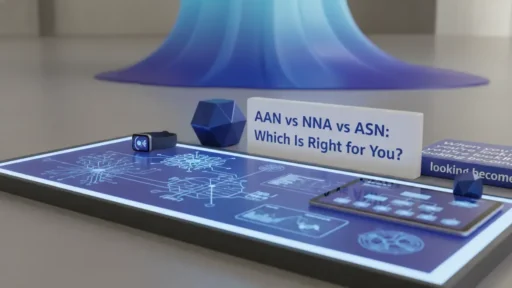Buying or selling a vehicle involves plenty of paperwork, and the bill of sale is one of the most important documents you’ll need. It proves the transfer of ownership from seller to buyer. But here’s a question many people ask: does it need to be notarized?
A notarized bill of sale isn’t always required, but it adds protection for both parties. When a notary public witnesses the transaction, you get an impartial third party confirming everything is legitimate. This extra step matters most in states where it’s legally required or when you want extra security against future disputes.
Let’s break down when you need a notarized bill of sale and why it’s worth considering.
What Is a Bill of Sale?
A bill of sale documents the transfer of ownership between a seller and a buyer. You’ll see these in vehicle sales, real estate deals, and personal property transactions.
What’s Included
A proper bill of sale contains:
- Names and contact information for both buyer and seller
- Description of what’s being sold (for vehicles: make, model, year, VIN)
- Sale price
- Date of transaction
- Signatures from both parties
This document proves ownership changed hands, which protects everyone if questions come up later.
Types of Bills of Sale
General Bill of Sale – Covers most personal property sales with basic transaction details. No warranties included.
Absolute Bill of Sale – The seller guarantees they own the item outright and can legally sell it without any liens or claims against it.
Conditional Bill of Sale – Used when ownership transfers only after certain conditions are met. Common in payment plan situations.
Notarized Bill of Sale – Any of the above types, but authenticated by a notary public for extra legal protection.
Why Notarize a Bill of Sale?
Notarization isn’t just checking a box—it strengthens the document’s legal standing.
Legal Protection
Courts take notarized documents more seriously. When a notary witnesses the signing, it’s much harder for someone to claim the signature is fake or that they were forced to sign. If you end up in court over the transaction, a notarized bill of sale gives you solid evidence that both parties agreed to the terms willingly.
Security Against Fraud
A notary public verifies everyone’s identity before they sign. They check driver’s licenses, passports, or other government IDs to make sure you are who you say you are. This verification stops identity theft and fraud before it happens.
When there’s a dispute about who signed what, the notarized document provides clear proof. No one can claim later that someone forged their signature.
How to Get Your Bill of Sale Notarized
Getting a bill of sale notarized is straightforward if you know the steps.
The Process
1. Prepare Your Document
Fill out the bill of sale completely before meeting the notary. Include all buyer and seller information, a detailed description of the item, the sale price, and transaction date. Double-check for accuracy—mistakes can cause problems.
2. Bring Valid ID
Both buyer and seller need government-issued photo identification. Driver’s licenses and passports work. The notary will check these to verify your identity.
3. Both Parties Must Be Present
You can’t sign ahead of time. Both buyer and seller must appear in front of the notary together to sign the document.
4. Sign in Front of the Notary
The notary watches both parties sign. They verify your identities, witness the signatures, then add their own signature and official seal to validate the document.
Where to Find a Notary
Banks and Credit Unions – Many offer free notary services to account holders. Call ahead to check availability.
Shipping Centers – UPS Store and FedEx locations often have notaries on staff during business hours.
Law Offices – Most law firms provide notary services, especially for legal documents.
Online Notary Services – BlueNotary and similar platforms let you get documents notarized remotely via video call. This saves time and works around your schedule.
Mobile Notaries – These notaries travel to your location for added convenience, though they typically charge more.
Always verify the notary has a current license. An unlicensed notary’s work won’t hold up legally.
Pros and Cons of Notarizing
Like any decision, notarizing a bill of sale has upsides and downsides.
Benefits
Stronger in Court – Judges and courts accept notarized documents as credible evidence. If someone challenges the sale, you’re in a better position.
Fraud Prevention – Identity verification stops scammers and imposters. You know the person you’re dealing with is legitimate.
Faster Dispute Resolution – When disagreements happen, a notarized document settles questions quickly. Everyone’s intent is documented and verified.
Clear Ownership Transfer – Buyers get peace of mind knowing the ownership transfer is ironclad. Future claims against the vehicle or property are less likely.
Drawbacks
Time and Money – You’ll need to schedule an appointment and possibly pay a fee (typically $10-15). This can slow down quick transactions.
Access Issues – If you live in a rural area, finding a notary might be difficult. This is where online notary services help.
Extra Steps – Gathering documents and coordinating schedules between buyer, seller, and notary takes effort. Some people find this process cumbersome.
False Sense of Security – A notarized bill of sale is strong protection, but it’s not everything. You still need to do your due diligence on the vehicle’s history, liens, and condition.
Common Mistakes That Cause Problems
Incomplete Information
Missing information can invalidate your bill of sale. Make sure you include:
- Full legal names (not nicknames)
- Complete item description (for vehicles: VIN, make, model, year, color)
- Exact sale price (write it out: “$5,000” not just “5000”)
- Transaction date
- Both signatures
Leaving out any of these details creates confusion and makes it harder to prove ownership transferred.
Skipping Identity Verification
Some people try to rush through notarization without proper ID checks. This defeats the entire purpose. If identities aren’t verified, the document loses its legal strength.
Notaries must see government-issued photo ID from both parties. This step prevents fraud and ensures the people signing are actually the buyer and seller.
Signing Before Meeting the Notary
The notary must watch you sign the document. Pre-signed documents can’t be notarized. If you’ve already signed, you’ll need a new copy of the bill of sale to sign in front of the notary.
Bill of Sale Notarization Bottom Line
A notarized bill of sale adds legal protection and reduces the risk of disputes when buying or selling a vehicle or other property. While it requires some extra time and possibly a small fee, the security it provides often makes it worthwhile—especially for high-value transactions or in states where it’s required.
The notary’s role in verifying identities and witnessing signatures makes fraud much harder and gives both parties confidence in the transaction. Just make sure you complete the document correctly and bring proper identification.
For major purchases like vehicles, the small investment in notarization can save you from big headaches down the road.
Frequently Asked Questions
What is a bill of sale and why is it important in vehicle transactions?
A bill of sale is a legal document that proves ownership of a vehicle transferred from the seller to the buyer. It includes names, contact information, a vehicle description, sale price, and date. This document protects both parties if disputes arise and serves as legal proof of the transaction.
How does a notarized bill of sale differ from a regular bill of sale?
A notarized bill of sale has been authenticated by a notary public who verifies the identities of both parties and witnesses their signatures. This extra step makes the document harder to dispute in court and provides stronger protection against fraud and forgery.
What are the benefits of notarizing a bill of sale?
Notarization strengthens legal validity, prevents fraud through identity verification, speeds up dispute resolution, and clearly establishes ownership transfer. Courts recognize notarized documents as credible evidence, making them valuable if legal issues arise.
Are there any drawbacks to notarizing a bill of sale?
Yes. Notarization takes time to schedule and may cost $10-15. Finding a notary can be difficult in remote areas, and the process requires coordination between multiple parties. Some people also mistakenly think notarization alone protects them without doing other due diligence.
What common mistakes should be avoided during the notarization process?
Avoid incomplete documentation (missing names, descriptions, prices, or signatures) and skipping identity verification. Both mistakes can weaken or invalidate the document. Also, never sign the document before meeting the notary—they must witness your signature.
How can one get a bill of sale notarized?
Prepare the complete document, bring valid photo ID for both parties, and schedule a meeting with a notary. Both buyer and seller must sign in the notary’s presence. You can find notaries at banks, UPS/FedEx stores, law offices, or use online notary services like BlueNotary for remote notarization.








